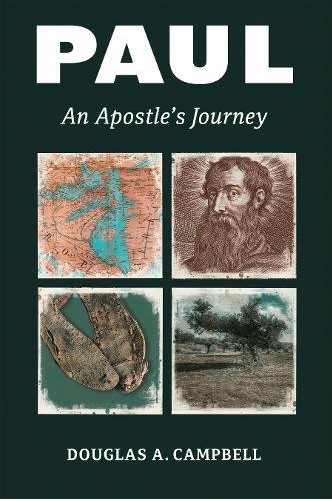 I was thinking of the apostle Paul and how his past, so far as we can know, prepared him for his life as an apostle. God used his life in Tarsus to prepare Paul to be the great integrator, though it took an eye-twittering experience of seeing Jesus himself to accept the challenge.
I was thinking of the apostle Paul and how his past, so far as we can know, prepared him for his life as an apostle. God used his life in Tarsus to prepare Paul to be the great integrator, though it took an eye-twittering experience of seeing Jesus himself to accept the challenge.
Some people observe that Paul’s mission drove his theology, and they are right.
But what was Paul’s mission? How would you summarize it? Is there one word that grabs the whole of his mission?
There is an early Christian tradition, from the 4th Century Christian father Jerome, informing us that Paul’s family was originally from Gischala in Galilee. As a result of a war in Galilee with Rome the family later moved to Tarsus (perhaps as slaves). Paul spent a decade or more in Tarsus but as a young man moved back to the Holy Land, to Jerusalem, to study Torah among Israel’s elite and sophisticated. Here is what Jerome said about Paul’s life:
Paul, formerly called Saul, an apostle outside the number of the twelve apostles, was of the tribe of Benjamin and the town of Giscalis [Gischala] in Judea [Galilee]. When this [town] was taken by the Romans he removed with his parents to Tarsus in Cilicia. Sent by them to Jerusalem to study law he was educated by Gamaliel a most learned man whom Luke mentions…. As Sergius Paulus Proconsul of Cyprus was the first to believe on his preaching, he [Paul] took his name from him because he had subdued him to faith in Christ…. (From Jerome, Lives of Illustrious Men, chp 5.)
When Saul, the Jewish name by which he was then known, moved from Tarsus to Jerusalem as a young man his life shifted from seeing Gentiles all the time to seeing Gentiles far less frequently. A good Gentile for Saul was a proselyte. His move to Jerusalem meant the wall between observant Jews and Gentiles got thicker and taller and everything we read about him suggests he thickened and heightened those walls. The irony and the single most important sign of grace in Paul’s life was that this builder of walls between Jews and Gentiles became the wall destroyer. Everything in Paul’s three-decades of ministry was connected in some way to his driving ambition to rip down the wall of segregation between Jews and Gentiles in the One Family of God, the Body of Christ.
What Paul envisioned then was a church in which Jews were Jews and Gentiles were Gentiles but they were with one another, a church in which slaves and free sat next to another, and a church where men and women were not defined by sex but by unity in Christ and their giftedness. He wanted unity with diversity. He didn’t ask Jews to cease following Torah nor Gentiles to learn to speak Hebrew or Aramaic. He didn’t ask men to become women or women to become men. He asked them to transcend all distinctions with a unity of fellowship in Christ.
Paul would weep to see the disunity of our churches, some of it fancied up by language about church growth principles. Paul had a completely different idea of “growth.”











